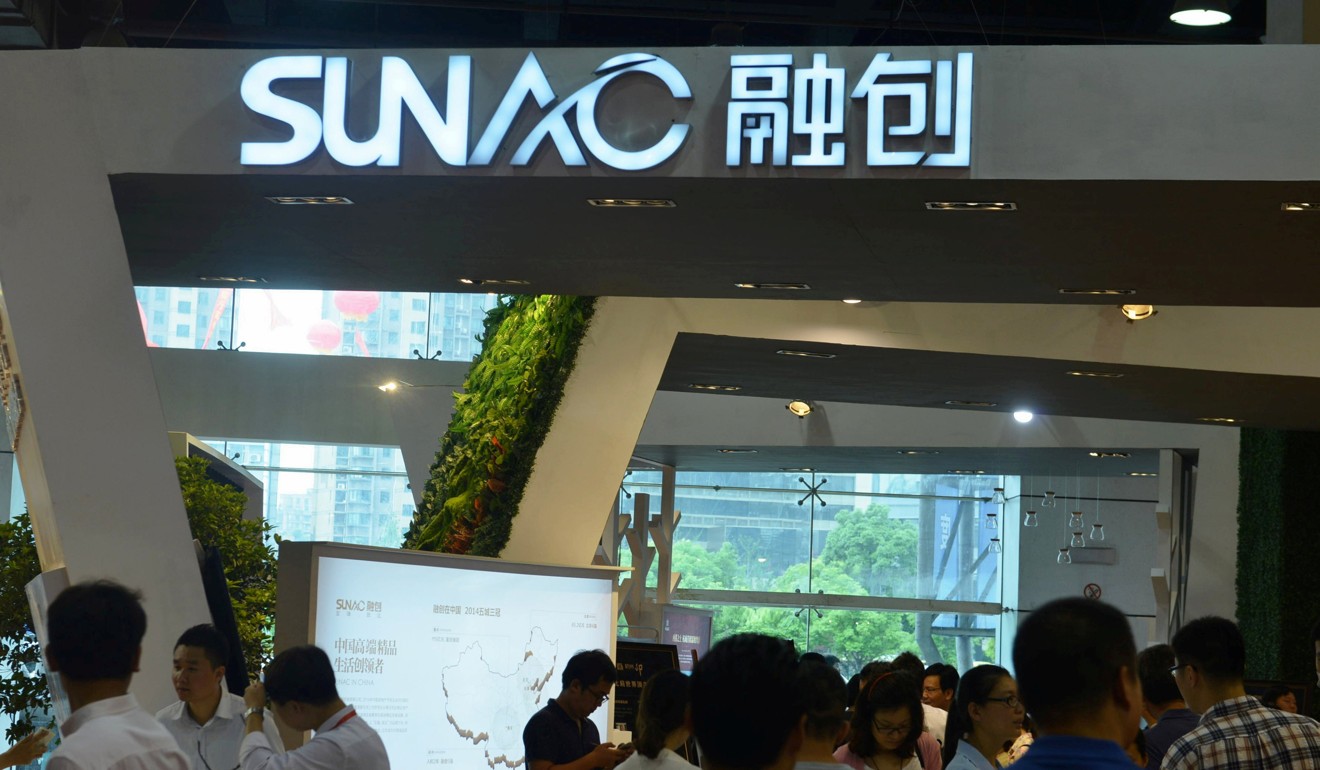
Tencent’s Pony Ma sells US$269m worth of shares in the business
Further share buy-backs by Kangda International, while Sunac China executive president Jing Hong increases holdings to 10,515 million shares, after a series of exec options-related sales earlier in the year
Share buying fell, while selling among directors remained high, based on filings to the Hong Kong Stock Exchange in the third week of October, with 48 companies that recorded 234 buys worth HK$379 million (US$48.55 million) versus 15 firms with 51 disposals worth HK$2.166 billion.
The buy figure was down from the previous week’s 52 companies, 316 buys and HK$496 million.
On the selling side, the number of firms and trades were consistent with the previous week’s 16 companies and 52 disposals, but the total value was significantly up from the previous week’s disposals worth HK$146 million.
That huge value, however, was mainly down to founder, chairman and CEO Pony Ma Hua Teng selling Chinese video games and social media blue chip Tencent Holdings shares worth HK$2.1 billion (US$269 million).
Ma moved up on Bloomberg’s Billionaire Index on July 21, 2017, and became the second richest man in China – a place previously held by Wanda Group’s founder Wang Jianlin.
Aside from directors, buy-back activity fell last week with 23 companies posting 87 repurchases worth HK$799 million based on filings from October 13 to 19. The figures were down from the previous 5-day totals of 25 firms, 101 trades and HK$898 million.
Despite the fall in the buying last week, the bulk of the significant trades were buys, with initial buy-backs by Kangda International and insider buys in Evergrande Health Industry and Sunac China Holdings.
Waste water treatment facilities investor and operator Kangda International Environmental repurchased 500,000 shares on October 19 at HK$1.95 each.
Also positive for Kangda this year has been movement by chairman and founder Zhao Juan Xian, with 7 million shares bought from May 9 to June 29 at HK$1.84 to HK$1.57 each or an average of HK$1.66 each.
The trades increased his holdings to 1.145 billion shares or 55.4 per cent of the issued capital. Before those, the chairman bought 20.5 million shares from January to May 2016 at HK$1.90 to HK$1.46 each or an average of HK$1.67 each, and 2.9 million shares from August to September 2015 at HK$3.90 to HK$1.97 each or an average of HK$2.47 each. The stock closed at HK$1.99 on Friday. The recent trade is the first buy-back by the company since listing in July 2014.
The trade was made on the back of the 34 per cent rebound in the company share price since August from HK$1.45. Despite the rebound, the counter is still down since March from HK$2.26 and since April 2015 from HK$4.80. The company’s buy-back price is lower than the IPO price of HK$2.80
The group announced in August a 50.2 per cent gain in first-half profit to 183.3 million yuan (US$27.67 million).
Evergrande Health Industry chairwoman Tan Chaohui acquired an initial 3.29 million shares of aesthetic surgery and anti-ageing health services provider from September 29 to October 16 at HK$3.45 to HK$3.75 each or an average of HK$3.54 each. The shares represented 0.04 per cent of the issued capital. The stock closed at HK$3.64 on Friday. The chairwoman’s buys are the first corporate shareholder trades in the company since the stock was listed in 2008.
They were made after the stock rose by as much as 153 per cent from HK$1.48 in August. The group announced its interim results in August, with profit up by 411 per cent to HK$79.61 million.

Sunac China Holdings executive president Jing Hong bought 915,000 shares in the real estate developer from October 6 to 10 at HK$41.65 to HK$39.46 each or an average of HK$40.17 each.
The trades increased his holdings to 10,515 million shares or 0.25 per cent of the issued capital. He previously sold 2.2 million shares in July 2014 at HK$4.69 to HK$4.95 each or an average of HK$4.75 each.
Sunac chairman Sun Hongbin also bought 14.6 million shares from January 16 to 18 at an average of HK$6.82 each. The trades boosted his stake to 2.102 billion shares or 54.47 per cent.
He previously acquired 34 million shares from December 7 to 21, 2016 at an average of HK$6.39 each, 3.65 million shares in August 2015 at HK$4.23 each and 31.47 million shares from July to November 2013 at an average of HK$5.02 each.
But the insider’s sentiment on Sunac is not all entirely positive this year, as there were options-related sales by three executive directors earlier this year.
Executive director Tian Liang sold 3 million shares from June 7 to 22 at an average of HK$14.19 each, which reduced his holdings by 33 per cent to 6.202 million shares or 0.16 per cent. He acquired those shares in the same period via options at an average of HK$4.70 each.
Vice-president Li Shaozhong sold 2.3 million shares on March 29 via options-related sale at HK$10.31 each, which lowered his stake by 29 per cent to 5.700 million shares or 0.15 per cent. He previously sold 3.6 million shares in July 2014 at an average of HK$4.75 each.
And executive director Chi Xun sold 1.62 million shares from January 3 to 4 via options-related sales at an average of HK$6.70 each, which reduced his holdings by 18 per cent to 7.584 million shares or 0.2 per cent. He previously sold 3.6 million shares in July 2014 at HK$4.69 to HK$4.97 each or an average of HK$4.74 each and 200,000 shares in September 2012 via options-related sales at an average of HK$3.76 each. The stock closed at HK$39.45 on Friday.
The buys by executive president Jing Hong were made after the stock rose by as much as 788 per cent from his sale prices in 2014. The recent buys are Jing Hong’s first acquisitions since his appointment in 2012, increasing his holdings by 10 per cent.

